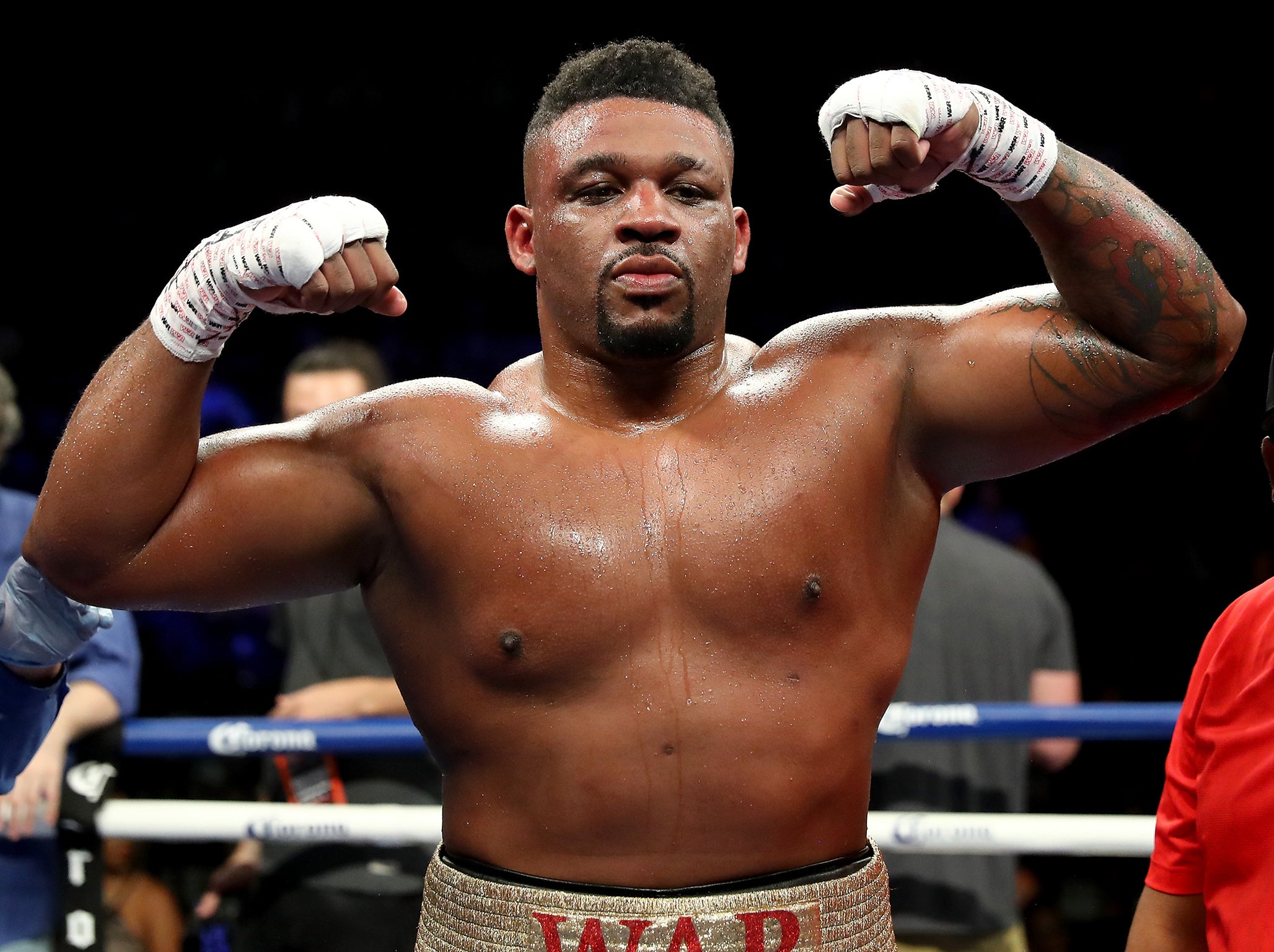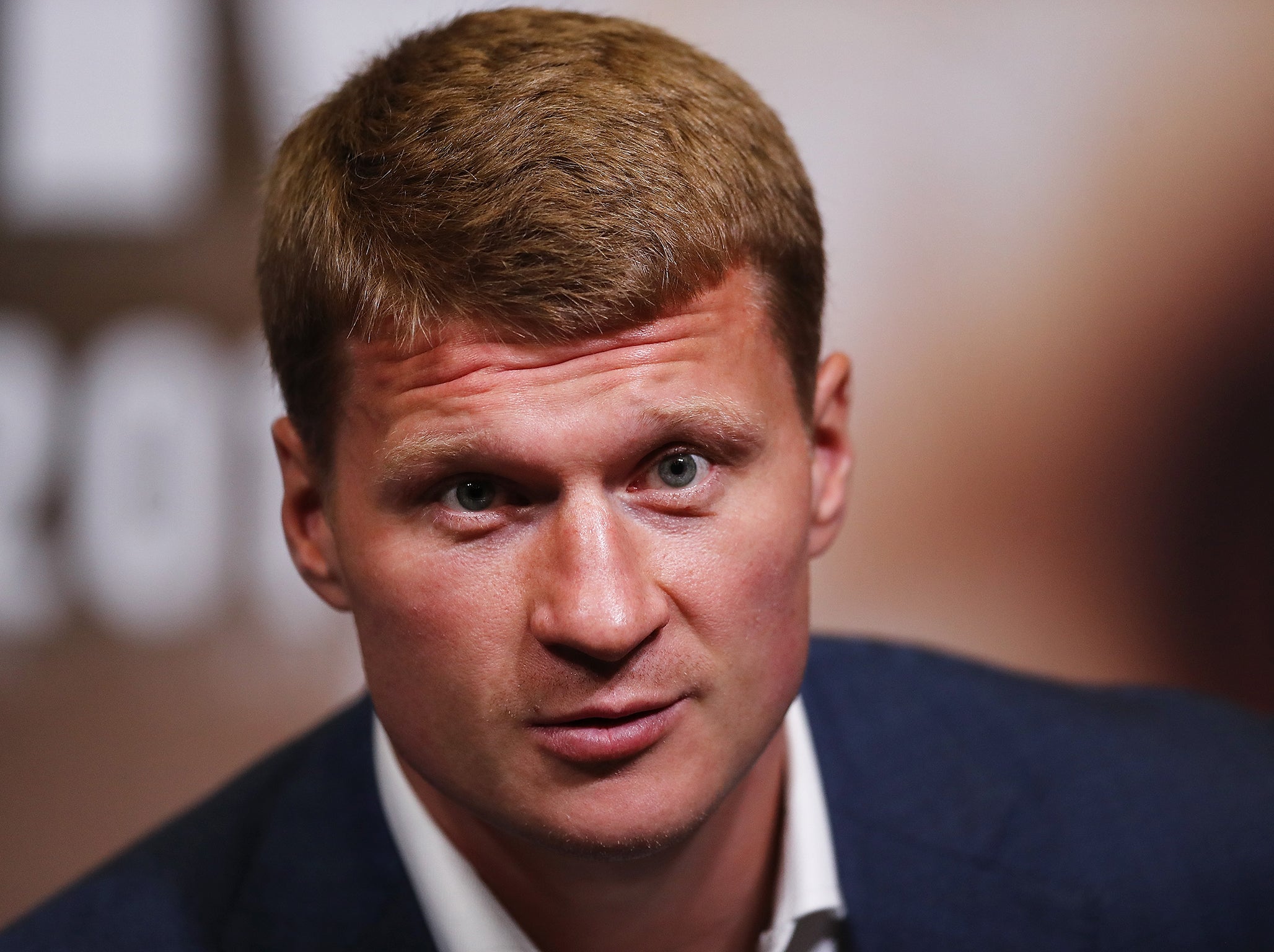Why we should pause and reflect before condemning Jarrell Miller as a morally corrupt drugs cheat
For those like Miller, the likes of Anthony Joshua are always treated with conspiracy and paranoia. The medical staff, nutritionists, the smarter, scientific approach. The fear of being one-upped by a world unknown
There’s a picture which comes to your mind when you imagine a boxing gym. It’s the type of iconic ramshackle warehouse set against a dilapidated street in the Bronx with a low-ceiling and where the clanking chains of old punchbags echo. The gritty, unprimped refuge where everybody turns and stares at the newcomer walking in and is able to turn around the lives of a city’s desperate, misguided or impoverished.
Harry Keitt was one such child. He had never met his father and until she passed away grew up believing his grandmother was his mother. When he was relocated to New York with his biological mother in the projects of Bedford-Stuyvesant, New York, her violent husband held a meat cleaver to his throat and threw him out the house.
But one day, Keitt caught the eye of local boxing trainer George Washington, trainer to heavyweight king Riddick Bowe and Olympic gold medallist Mark Breland, and walked into the Broadway Gym. Washington treated Keitt like a son, trained him without charge and guided him to the final of the 1978 Golden Gloves - the biggest amateur competition in the US. But it was too late to break the cycle. The crack Keitt was smoking and selling took its spiral. Four years later, he shot his own cousin seven times over a drugs dispute and served a year-and-a-half in prison.
When Keitt was released, he searched for a redemption as a boxing trainer, piecing together the lives of those he saw a part of himself in. In 2005, a young man named Jarrell Miller walked into his boxing gym. Miller too had never met his biological father, he was one of 15 to 20 siblings - he isn’t sure himself. He’d lived between Brooklyn and Belize, been involved in violence on the streets and with his stepfather at home, dealt drugs and worked nightclubs, before stepping into Mendez Boxing Gym. Two years later, Miller too reached the final of the Golden Gloves.
There is an idea that all boxers’ careers begin this way. The outsiders who fight their way up, from projects to penthouse, from fighting in shopping centres to stadiums. A constant cycle in a billion dollar industry, where some are picked out and the majority are left behind.
As Miller’s own nascent career began, another young American heavyweight by the name of Deontay Wilder was being prepped to go to Beijing. The Alabaman, who started training out of an equally hallmarked gym in Northport, was being flown across the world to amateur competitions and training with elite coaches at Team USA Olympic centres.
For every Wilder, there are a hundred Millers playing catch-up. There is a curious envy and then the conspiracies start to creep in. The Olympic hopefuls are treated by a range of sports scientists and doctors, carving out every possible edge. Meanwhile, Miller had to scour the shelves of his local pharmacy, staring into an expensive row of vague promises looking for a way to keep up. He looked at the sport’s elite, rarely drug tested, training out of secluded gyms in the Californian hills, visiting runners’ training camps in Ethiopia and ex-Soviet Union military sports centres. The longer time spent in the dark, the more room in the mind there is to imagine.

Nobody will know when Miller first succumbed to temptation and took a performance-enhancing drug. Perhaps, it came before he first failed a test in 2014, ten fights into his professional career and was banned for nine months. Nor is there any way of truly knowing if he has been clean for all or any of his fights since. Previous opponents, such as Gerald Washington, aired their concerns before fights. “In the past he has proven not to be [a clean fighter] and just looking at the way he acts - he acts like somebody who is really emotional, like something is altering his mind, he acts a little crazy,” Washington’s trainer said in 2017. “I have my questions and concerns.”
What we do know is that five of the recognised heavyweight top-10 have failed at least one drugs test in their career. Wilder won the world title from Bermane Stiverne (failed), was then scheduled to face Alexander Povetkin (failed), before fighting Luis Ortiz (failed). Tyson Fury (failed), Hughie Fury (failed), Dillian Whyte (failed), Eric Molina (failed) Mariusz Wach (failed), Lucas Browne (failed). All of those mentioned have either fought for, or won, a world title. By that ratio, for every honest professional at the top of the sport, there is one who is willing to cheat. Add to that the fact that not every cheat is caught out and the ratio soars far higher.
Enjoy 185+ fights a year on DAZN, the Global Home of Boxing
Never miss a fight from top promoters. Watch on your devices anywhere, anytime.
ADVERTISEMENT. If you sign up to this service we will earn commission. This revenue helps to fund journalism across The Independent.
Enjoy 185+ fights a year on DAZN, the Global Home of Boxing
Never miss a fight from top promoters. Watch on your devices anywhere, anytime.
ADVERTISEMENT. If you sign up to this service we will earn commission. This revenue helps to fund journalism across The Independent.

Every elite boxer knows their opponent will have at some stage come across, been offered, or known someone using PEDs. For those like Miller, the likes of Anthony Joshua are always treated with paranoia. The medical staff, nutritionists, the smarter, scientific approach. The fear of being one-upped by a world unknown.
“Boxing trainers are being replaced by strength and conditioning coaches,” Keitt himself said in an interview last year. “Lots of guys today are using drugs to get stronger or faster. People are looking for an easy way to succeed.”
For his entire life, Miller has lived with suspicion. Giving into temptation makes him a cheat, it makes him dishonest, untrustworthy and in a sport where people’s lives are at risk, morally corrupt. But what pushed him to do so wasn’t just the edge of winning or monetary greed. It was to achieve a level playing field in a life where he’s always been one step behind. He blew it, but the angst is so deep-rooted, distrust so rife, that you begin to understand why the culture and cycle has always continued.
Join our commenting forum
Join thought-provoking conversations, follow other Independent readers and see their replies
Comments
Bookmark popover
Removed from bookmarks